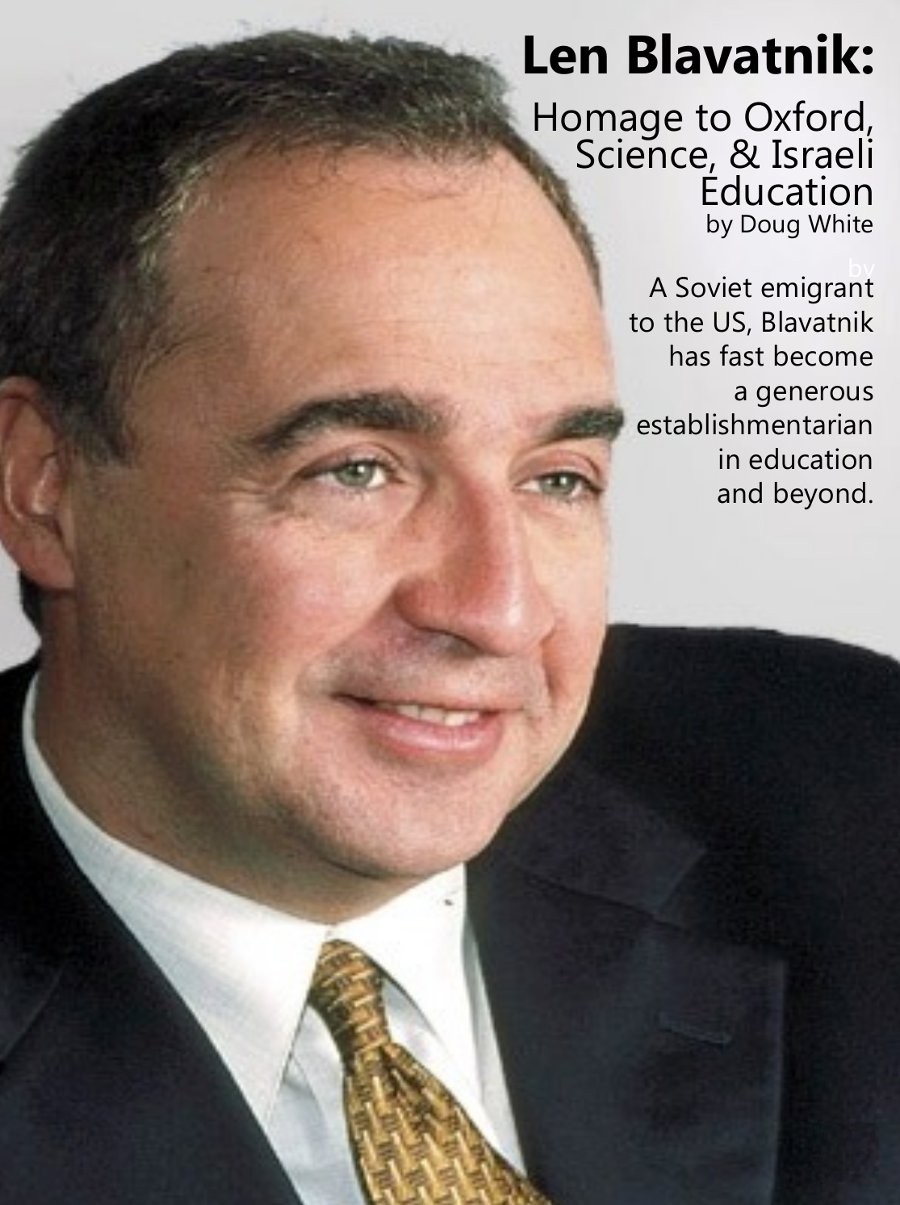



“Leonard Blavatnik is making possible a new way for Oxford to contribute to the world.” So began the September 2010 tribute by Lord Christopher Patten, Chancellor of the University of Oxford, in his remarks acknowledging Blavatnik’s “once-in-a-century” $120 million gift, which established Europe’s first major school of government at the oldest university in the English-speaking world.
Blavatnik, like many other donors with an eye on making transformational gifts, is not new to philanthropy.
Through his family foundation, he recently donated $50 million to fund the “Blavatnik Award for Young Scientists” at the New York Academy of Sciences. The money is helping to expand the number of people who are eligible to receive the award, which will now be open to faculty-rank scientists across the United States age 42 or under. The idea of “young” is key. According to Eric Lander, a director of the Broad Institute of Harvard and MIT, “Young scientists drive scientific discovery and innovation. They feel urgency and impatience. They think creatively and boldly. While we must support promising scientists at all levels, young scientists are a critical resource that we must nurture for the good of the whole scientific enterprise.”
But while academic pursuits feed the mind and eventually improve lives, Blavatnik is also putting his money where it will have immediate impact on people who desperately need it. He gives much every year to Colel Chabad, an Israeli charity that operates a network of soup kitchens and food banks, dental and medical clinics, daycare centers, widow and orphan support, and immigrant assistance programs. Founded in 1788, Colel Chabad is the oldest continuously operating charitable organization in Israel. Blavatnik’s support provides food every month for 5,000 families in 25 Israeli cities and towns.

In 1978, during a period of mass emigration for Soviet Jews, Blavatnik left his home in the Soviet Union for the United States. After then earning advanced degrees at Columbia and Harvard, his business career took off. He founded and is chair of Access Industries, a privately held multi-national company headquartered in New York, that invests in natural resources and chemicals, media and telecommunications, and real estate. In 2011 a subsidiary of Access bought the Warner Music Group for $3.3 billion.

As his generosity shows, Blavatnik tends not to think of starting new charitable enterprises; what makes his gifts noteworthy is his well-funded focus on improving what’s already working. There might be no better example, and thus an explanation for his comfort in giving away so much of his wealth, than his bet on one of the world’s premier educational institutions—a grand gesture meant to fuse history with the future. In Lord Patten’s words: “Oxford will now become the world’s leading center for the training of future leaders in government and public policy—and in ways that take proper account of the very different traditions, institutions and cultures that those leaders will serve. It is an important moment for the future of good government throughout the world.”
True enough. But even so, his gifts might say as much about the man, and his vision of what’s right in the world, as it does about the institutions that he supports.